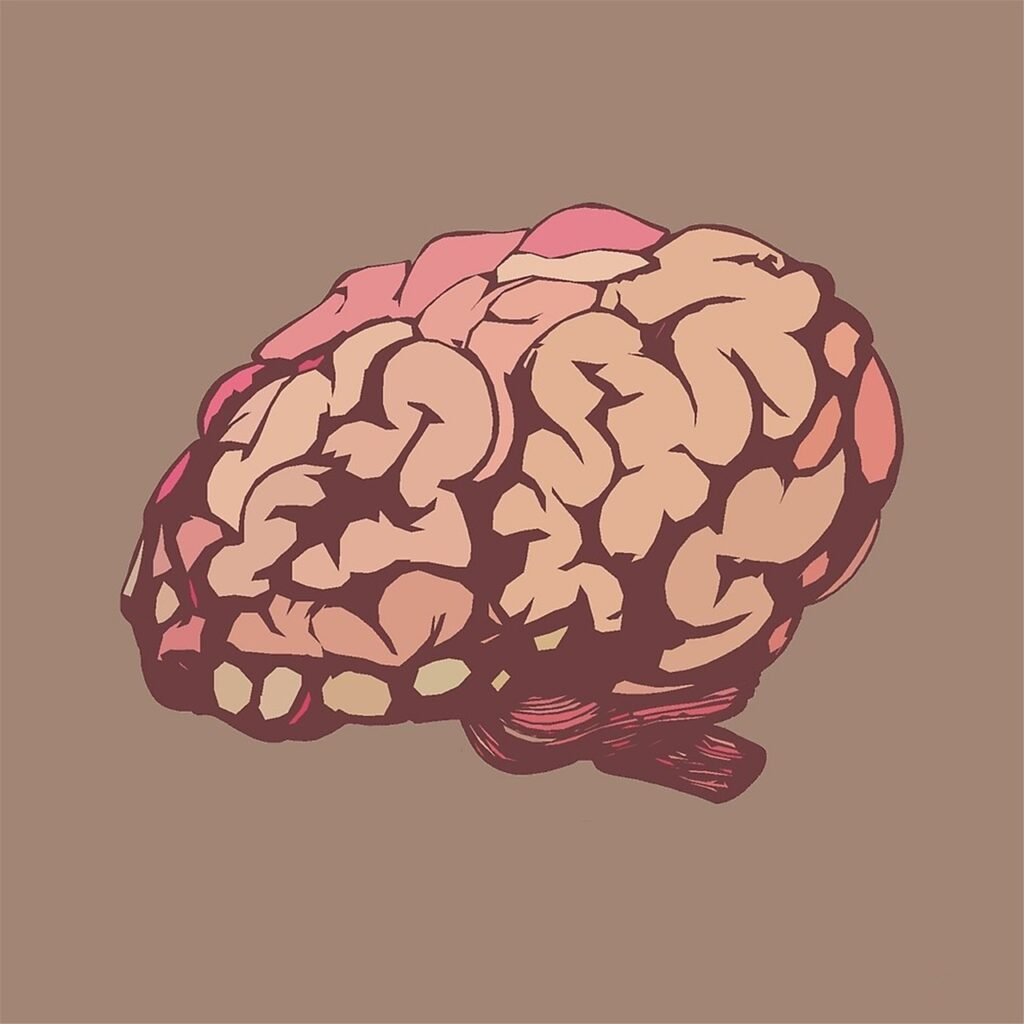
Study Hack: Your Brain’s Cheat Code
Imagine yourself at a study table, an open textbook in front of you, but your mind wanders, distracted by unrelated thoughts. How many times have you felt stuck in this frustrating cycle? There’s a way out of this mental maze: a science-based approach to unlocking your cognitive potential. This article explores the brain’s “cheat codes” that will transform how you learn, making every minute of study more effective and every concept more memorable.
The Brain: A Pattern Machine

Your brain loves patterns. Every time you learn something, it creates connections between neurons, forming pathways that become highways with repeated tasks or ideas. This ability, called neural plasticity, is your ally. But beware: not all study methods are created equal.
A fascinating fact? Researchers at Stanford University discovered that students who create graphical summaries—mind maps, charts, or diagrams—remember 35% more information than those who use only text. Why? Images and visual concepts activate both hemispheres of the brain, making memories more vivid.
Practical Tip: Transform your notes into images or mind maps. For example, if you’re studying history, draw a timeline. Your brain will appreciate this dual cognitive effort.
Read also : How habit works
The 25-Minute Law: The Pomodoro Technique

Imagine running a marathon without breaks. Exhausting, right? That’s what you’re doing to your brain by studying for hours without interruption. The Pomodoro Technique, developed by Francesco Cirillo, suggests working in 25-minute intervals followed by 5-minute breaks. Why does this work?
Neuroscience studies show that human attention sharply declines after 20 to 30 minutes of continuous focus. A strategic break allows your brain to process information and replenish its energy. During these breaks, doing something simple, like stretching or walking, can boost your creativity by up to 60%.
Practical Tip: Use a timer or an app like “Forest” to structure your sessions. Visualize these 25 minutes as mini-sprints.
Engage Your Five Senses

Do you remember the smell of a cake baking in your grandparents’ oven or the sound of a particular song transporting you to a specific moment? These powerful memories are rooted because they engage multiple senses. Applying this principle to your studies can have a similar effect.
A study from the University of Sussex found that students who associated scents (like lavender or lemon) or specific sounds (like instrumental music playlists) with their learning improved their recall by 20%. These elements act as “contextual cues,” triggering more precise memories during exams.
Practical Tip: Try diffusing a specific scent during your study sessions or listen to soft background music. But be cautious: avoid distracting lyrics!
Tell a Story

We are narrative creatures. Since time immemorial, stories have helped us memorize and transmit complex information. So why not turn your study subjects into captivating narratives?
Take an example. Suppose you’re learning about photosynthesis. Instead of memorizing a dry definition, imagine a day in the life of a leaf. Describe how it “drinks” sunlight, mixes carbon dioxide and water, and “cooks” glucose for itself. This narrative brings a biological process to life, making the concept more memorable.
Studies confirm that facts presented as stories are 22 times more memorable than a list of information.
Practical Tip: Create stories, analogies, or metaphors for each complex subject you’re studying. Your brain loves characters and plots.
The Power of Sleep

Imagine your brain is a hard drive. Every day, you add new data to it. But for this information to stay, it needs to be saved. That’s what sleep does. While you sleep, your brain undergoes a process called memory consolidation, sorting, strengthening, and storing knowledge.
Research from Harvard Medical School showed that people who slept after learning something new improved their recall by 40%. Conversely, staying up all night to cram can reduce long-term information retention.
Practical Tip: Schedule 7 to 9 hours of quality sleep each night, especially before exams or presentations.
Activate Your Brain with Physical Exercise

When you move, you stimulate the production of BDNF (Brain-Derived Neurotrophic Factor), a protein essential for creating new neural connections. This explains why a simple walk can clear your mind or help you solve a complex problem.
A study published in Psychological Science reveals that students who exercise before a study session or exam perform better than those who remain sedentary. Exercise not only improves memory but also enhances concentration.
Practical Tip: Incorporate 20 to 30 minutes of moderate physical activity into your daily routine. A brisk walk, yoga, or even stretching can work wonders.
The Power of Repeated Testing

Reading and rereading notes isn’t an optimal study strategy. Instead, regularly testing yourself is far more effective. This principle, known as the testing effect, is based on the idea that retrieving information strengthens its imprint in memory.
An experiment from Purdue University found that students who took practice tests after studying remembered 50% more information than those who simply reread their notes.
Practical Tip: Turn your notes into quizzes or flashcards. Use platforms like Anki or Quizlet to automate the process.
Hydrate Your Mind

The brain is about 75% water, and even mild dehydration can impair concentration and memory. A British study showed that students who drank a glass of water before an exam scored higher than those who didn’t drink anything.
Practical Tip: Keep a water bottle nearby during study sessions and sip regularly.
Your Personal Cheat Code

These techniques aren’t one-size-fits-all solutions. Some will work better for you than others. But here’s the key: experiment, adapt, and stay curious. Each study session becomes an opportunity to better understand your own mental functioning.
Turn your study sessions into a laboratory, your brain into a finely tuned machine, and your potential into a tool ready to conquer anything you want to learn. You’re no longer playing by the rules; you’re creating them.
Embrace the Journey

Learning is more than just absorbing information—it’s about transforming how you interact with the world. By implementing these brain hacks, you’re not just preparing for exams or advancing your career; you’re enhancing your overall cognitive abilities and making learning a more enjoyable and fulfilling experience.
Remember, the goal isn’t to study harder but to study smarter. These strategies, backed by scientific research, offer a roadmap to maximize your learning efficiency and retention. As you integrate these techniques into your routine, you’ll find that your ability to grasp and retain information improves significantly.
Real-Life Success Stories

Consider Sarah, a marketing professional who struggled with retaining complex data and industry trends. After adopting the Pomodoro Technique and incorporating regular exercise into her routine, she noticed a marked improvement in her focus and memory. Her ability to recall information during meetings and presentations boosted her confidence and performance at work.
Similarly, James, a college student, found that using mind maps and storytelling made his study sessions more engaging. By turning dry historical facts into compelling narratives, he not only enjoyed his studies more but also performed better in his exams.
The Science Behind the Hacks

Understanding the science behind these study hacks can further motivate you to implement them. Neural plasticity, the brain’s ability to reorganize itself by forming new neural connections, plays a crucial role in learning. Techniques like visualizing ideas and creating stories stimulate both hemispheres of the brain, enhancing memory and recall.
The Pomodoro Technique leverages our brain’s natural attention span limits, ensuring that we remain focused without burnout. Regular breaks prevent cognitive overload, allowing the brain to process and store information effectively.
Physical exercise increases blood flow to the brain, delivering essential nutrients that support cognitive functions. Hydration maintains the brain’s efficiency, as even mild dehydration can lead to reduced cognitive performance.
Building a Sustainable Study Routine

Creating a sustainable study routine involves integrating these hacks into your daily life in a balanced manner. Start by identifying which techniques resonate most with you. Perhaps begin with the Pomodoro Technique to structure your study sessions and gradually incorporate other strategies like mind mapping and regular testing.
Consistency is key. Make these techniques a habit rather than a temporary fix. Track your progress and adjust your methods as needed to find what works best for your unique learning style.
Overcoming Common Challenges

Implementing new study techniques can come with challenges. You might find it difficult to break old habits or feel resistant to change. Here are some tips to overcome common obstacles:
- Stay Patient: Cognitive changes take time. Give yourself grace as you adjust to new methods.
- Seek Support: Share your goals with friends or study groups who can encourage and hold you accountable.
- Stay Flexible: If a particular hack isn’t working, don’t be afraid to tweak it or try something else.
- Celebrate Small Wins: Acknowledge your progress, no matter how small. This builds motivation and reinforces positive behavior.
Final Thoughts
Your brain is a powerful tool, and with the right strategies, you can harness its full potential. These study hacks are designed to work with your brain’s natural processes, making learning more efficient and enjoyable. By adopting these techniques, you’re not just preparing for immediate academic or professional challenges; you’re investing in lifelong learning and cognitive resilience.
Embrace these cheat codes, experiment with them, and watch as your ability to learn and retain information transforms. Your journey to smarter, more effective learning starts now.
Grow your career with a professional qualification that you can complete from anywhere. Get your free course guide and begin your journey today.
If you want to go further, here’s a guide. To get it, click here!



